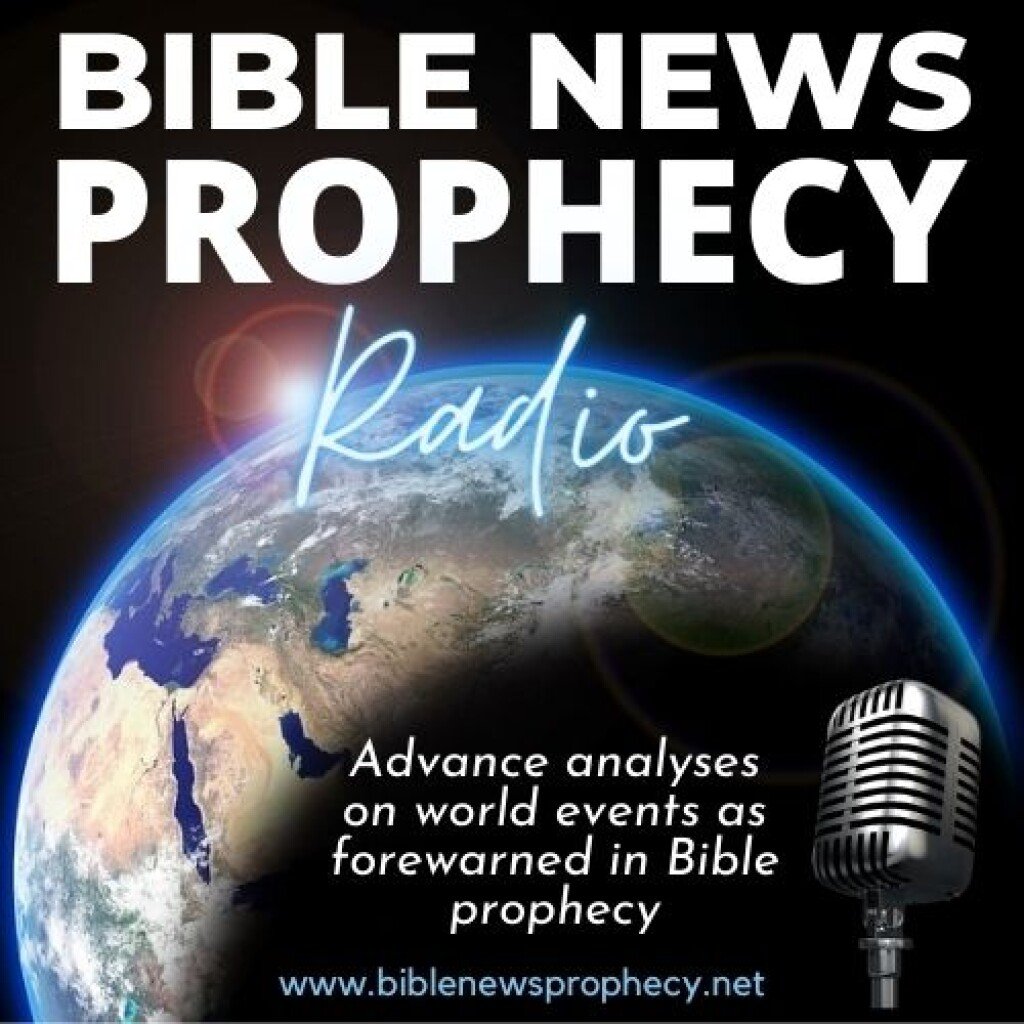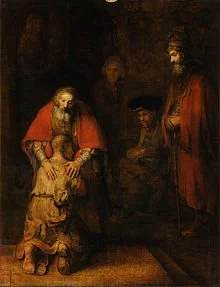Notice something related to an ex-Satanist turned Protestant:
John Ramirez spent much of his early life with strong ties to the devil–he drank animal blood, conducted sacrifices, was baptized with the devil and got married in a demonic wedding on Halloween. …
“I wonder why people celebrate Halloween these days,” the 55-year-old told Fox News. “Because in essence, I know what Halloween is about. I was in witchcraft for 25 years … selling my soul to the devil, I was a general for the devil … as a warlock.”
He added: “Have you ever heard a Satanist say, ‘I can’t wait for Good Friday to go to church with you?’ So, why would the Christians say, ‘I can’t wait for Halloween to say I want to dress up’ … It’s cheating on God, really.”
Ramirez, who grew up in the Bronx, was part of a Satanist church from when he was 8 years old to 35 years old. …
He showed Fox News the marks on his body, the “mark of the beast,” as he reached the “highest rank of devil worshippers” and a “name chosen by the devil himself,” after kissing a human skull and being cut open and burned in demonic ceremonies. …
Ramirez said he threw away thousands of dollars worth of witchcraft materials in the closet — including human bones, cemetery dirt, etc. …
He said all the witches claiming to do witchcraft against President Trump, “That was a hoax, just to make money.”
The author of “Destroying Fear,” said, “The devil’s greatest weapon is fear,” 10/30/19 https://www.foxnews.com/faith-values/halloween-celebrate-christian-satanist-evangelist
While many are aware of some of the pagan origins of Halloween celebrations, many d0 not realize where the practice of birthday celebrations came from or how they are viewed by certain Satanists.
Back in 1969 Anton Lavey wrote The Satanic Bible. On page 96 (in the 1976 version) it mentions birthdays:
THE highest of all holidays in the Satanic religion is the date of one’s own birth. This is in direct contradiction to the holy of holy days of other religions, which deify a particular god who has been created in an anthropomorphic form of their own image, thereby showing that the ego is not really buried.
The Satanist feels: “Why not really be honest and if you are going to create a god in your image, why not create that god as yourself.” Every man is a god if he chooses to recognize himself as one. So, the Satanist celebrates his own birthday as the most important holiday of the year. After all, aren’t you happier about the fact that you were born than you are about the birth of someone you have never even met? Or for that matter, aside from religious holidays, why pay higher tribute to the birthday of a president or to a date in history than we do to the day we were brought into this greatest of all worlds?
After one’s own birthday, the two major Satanic holidays are Walpurgisnacht and Halloween (or All Hallows’ Eve). (Lavey A, Gilmore P. The Satanic Bible. Avon, September 1, 1976, p. 96–note it is on page 53 of an online version I found also).
It is interesting that birthdays are considered one of the three most important holidays to these Satan worshipers (the two others called Walpurgisnacht and Halloween have pagan ties and are observed by millions who claim to be Christian). While not all Satanists share that view, most celebrate birthdays and those who practice astrology also consider birthdays of vital importance.
The Bible never encourages the celebration of birthdays. Instead, it tends to speak in a negative manner concerning them (cf. Matthew 14:6-11; Jeremiah 20:14-18).
Of course, despite the practices of many who profess Christianity or Judaism, early Christians did not celebrate birthdays nor did the early Jews. Nor have real Christians ever celebrated Halloween. As far as the Jews, notice that the first century Jewish historian Josephus noted that Jewish families did not celebrate birthdays:
Nay, indeed, the law does not permit us to make festivals at the birth of our children, and thereby afford occasion of drinking to excess (Josephus. Translated by W. Whiston. Against Apion, Book II, Chapter 26. Extracted from Josephus Complete Works, Kregel Publications, Grand Rapids (MI), 14th printing, 1977, p. 632).
Now although there is no specific command against the celebration of birthdays in the Bible, the Jewish custom in those days was apparently based on the negative occurrences in the Bible surrounding birthdays, as well as the astrological implications of the celebration of birthdays (pagan practices, like astrology, were specifically prohibited in the law).
No early religious/church writing from the second century that I have seen (and I have read most that are available) seems to endorse (or even suggest) the celebration of birthdays by any who professed Christ either.
Astrology also seems to play a role:
Since it was believed that the positions of the stars at the time of birth influenced a child’s future, astrological horoscopes came into being, purporting to foretell the future, based on the time of birth. “Birthdays are intimately linked with the stars, since without the calendar, no one could tell when to celebrate his birthday. They are also indebted to the stars in another way, for in early days the chief importance of birthday records was to enable the astrologers to chart horoscopes” (The Lore of Birthdays, p. 53). Rawlinson’s translation of Herodotus includes the following footnote: “Horoscopes were of very early use in Egypt… and Cicero speaks of the Egyptians and Chaldees predicting… a man’s destiny at his birth”…
When we examine the principles of God’s law closely, as they relate to birthday celebrations, we can understand why neither Christ, nor His Apostles, nor their true followers, observed their birthdays. As noted earlier, the practice has its origin in idolatry and the worship of the sun, moon and stars…Some may view birthday customs as purely secular, lacking any religious significance. Yet we need to be aware of the broader perspective of their origins, and the religious significance they have had—and still have—for vast multitudes of people. (Reynolds, Rod. Should Christians Celebrate Birthdays? Living Church News, May-June 2002. pp.16-18).
The Bible condemns practices associated with astrology:
You are wearied in the multitude of your counsels; Let now the astrologers, the stargazers, And the monthly prognosticators Stand up and save you From what shall come upon you. Behold, they shall be as stubble, The fire shall burn them; They shall not deliver themselves From the power of the flame (Isaiah 47:13-14).
Although he was not part of the Church of God, the writings of the early third century Catholic theologian Origen of Alexandria show that, even that late, Orthodox Catholics were against the celebration of birthdays. The Catholic Encyclopedia states:
Origen, glancing perhaps at the discreditable imperial Natalitia, asserts (in Lev. Hom. viii in Migne, P.G., XII, 495) that in the Scriptures sinners alone, not saints, celebrate their birthday (Martindale C. Christmas, 1908).
Here is some of what Origen wrote:
…of all the holy people in the Scriptures, no one is recorded to have kept a feast or held a great banquet on his birthday. It is only sinners (like Pharaoh and Herod) who make great rejoicings over the day on which they were born into this world below (Origen, in Levit., Hom. VIII, in Migne P.G., XII, 495) (Thurston H. Natal Day. Transcribed by Thomas M. Barrett. Dedicated to Margaret Johanna Albertina Behling Barrett. The Catholic Encyclopedia, Volume X. Copyright © 1911 by Robert Appleton Company. Online Edition Copyright © 2003 by K. Knight. Nihil Obstat, October 1, 1911. Remy Lafort, S.T.D., Censor. Imprimatur. +John Cardinal Farley, Archbishop of New York).
The writings of the late third century Catholic theologian Arnobius show that, even that late, Catholics objected to the celebration of birthdays as he wrote:
…you worship with couches, altars, temples, and other service, and by celebrating their games and birthdays, those whom it was fitting that you should assail with keenest hatred. (Arnobius. Against the Heathen (Book I), Chapter 64. Excerpted from Ante-Nicene Fathers, Volume 6. Edited by Alexander Roberts & James Donaldson. American Edition, 1886. Online Edition Copyright © 2005 by K. Knight).
Thus birthday celebrations, even of gods and leaders, were condemned as far as the late third century by even Roman Catholic leaders. But like many practices associated with non-biblical “Christianity”, this changed in the fourth century.
Essentially birthdays became celebrated later because of compromises with the pagan cult of Mithraism (see Did Early Christians Celebrate Birthdays? and Do You Practice Mithraism?)
And for over four decades now, Satanists claim that birthdays are their highest holiday. Do you observe them too?
Article with written related items and videos: Halloween and Birthdays are big holidays for Satanists
Click here for current news and analysis as well as literature in over 120 languages.
Click here for free online books and booklets in the English language.
Information on broadcast times for the European Gospel Radio /Short Wave Radio and other radio stations: Radio Stations
You may be interested in:
Birthdays, Christians and December 25th
Should Christians Be Involved In Astrology?
Let's Get Real About Halloween
Debunking 17 reasons to celebrate Halloween
Poltergeists and Lying Wonders
All Hallowed Saints' Day of the Dead
Hope of Salvation: How the Continuing Church of God Differs from Protestantism
Sermon series related to the free online book above:
Beliefs of the Original Catholic Church
Sermon Series related to the free online book above:
Where is the True Christian Church Today?
Sermon series related to the free online book above:
Continuing History of the Church of God: c. 31 to c. 300 A.D.
Continuing History of the Church of God: 4th-16th Centuries
Continuing History of the Church of God: 17th-20th Centuries
LATEST NEWS REPORTS
LATEST BIBLE PROPHECY INTERVIEWS


























